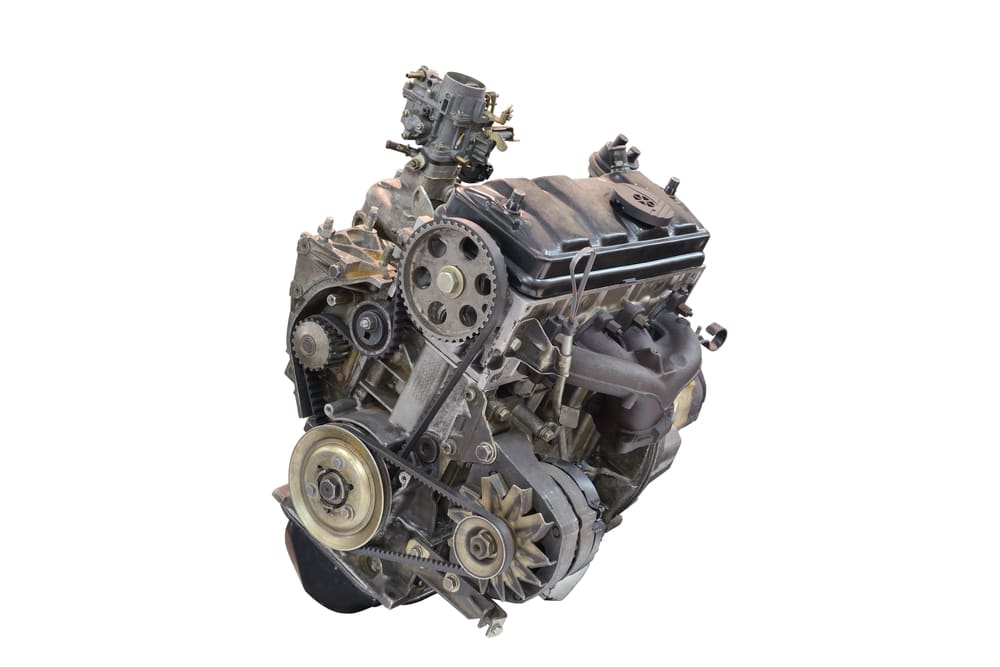

One of the most important settings your engine requires is proper ignition timing. Back in the "old days", manual systems like the distributor, points and coil would work together to mechanically control the ignition timing for engines. If you wanted to change the ignition timing, a mechanic would have to physically adjust the distributor and set it with the use of the timing light. Things have changed in recent years, as today's modern engines utilize multiple electronic devices to monitor and adjust ignition timing on the fly. One of these components is the speed timing sensor.
The speed timing sensor is mounted to the engine block and is a magnetic coil. It reads the teeth on the crankshaft as it revolves to determine the speed of the rotation. It then sends that information to the engine control module to report how the engine is performing. From there, the settings are adjusted to enhance the performance of the engine.
The ability to monitor engine efficiency in "real time" allows a vehicle to save fuel, operate as efficient as possible and can extend parts life. However, like any other sensor, it is prone to damage or failing and will display a few warning signs that a potential problem exists. Noted below are a few of the common symptoms of a worn out or failing speed timing sensor.
1. Transmission has difficulty shifting
One of the main jobs of the speed timing sensor is to monitor the engine RPM and send that information to the ECU which tells the transmission it's time to shift into a higher or lower gear. If the speed timing sensor is failing or sending inaccurate data, the engine will rev higher before the transmission shifts into a higher gear. You'll notice this issue if you're accelerating to highway speed and the transmission seems to take a long time to shift into the higher gear. If you notice this symptom, it's best to contact a local ASE certified mechanic as soon as possible, so they can replace the speed timing sensor if that is the source of the problem.
2. Check Engine Light comes on
The check engine light is typically the first indication that a problem with an engine sensor exists. Anytime a fuel, electronic or safety sensor is faulty, or sending inaccurate information to the vehicle’s ECU, the Check Engine Light will illuminate on the dashboard. Although many motorists tend to ignore the Check Engine Light, in this case, it could cause significant damage to your engine, transmission and entire drive-train if the speed timing sensor is the reason for the light.
Anytime your Check Engine Light comes on, you should contact a mechanic who will arrive with a diagnostic scanner that can download error codes from the computer and help them diagnose the precise problem.
3. Vehicle does not start
When the speed timing sensor is broken, it will not be able to send a signal to the vehicle’s onboard computer. This will shut down the ignition system and you will be unable to start the car. This is due to the fact that the onboard computer will be unable to calculate the engine speed. This causes the fuel system and ignition system to shut off, as improper ignition timing could cause catastrophic engine failure. If your vehicle does not start, contact a certified mechanic to determine why this is happening.
4. Loss of engine power
Another common symptom of a broken speed timing sensor is when the engine seems to lose power. This will be attributed to the engine’s inability to adjust timing as the vehicle drives down the road. The normal default of the engine computer is to reduce engine timing or (retard the timing) which takes power away. When you notice the car, truck or SUV is running sluggish, you should contact a local mechanic to road test and diagnose why this is happening. There are several issues that might be causing this warning sign, so it's best to have a mechanic pinpoint the exact reason.
A problem with the speed timing sensor is very rare, but when it goes bad, it typically triggers a safety setting in the vehicle's computer to ensure further damage does not occur. Anytime you notice any of the above warning signs, make sure to contact a local ASE certified mechanic so they can properly diagnose what's wrong and replace the speed timing sensor if needed.



